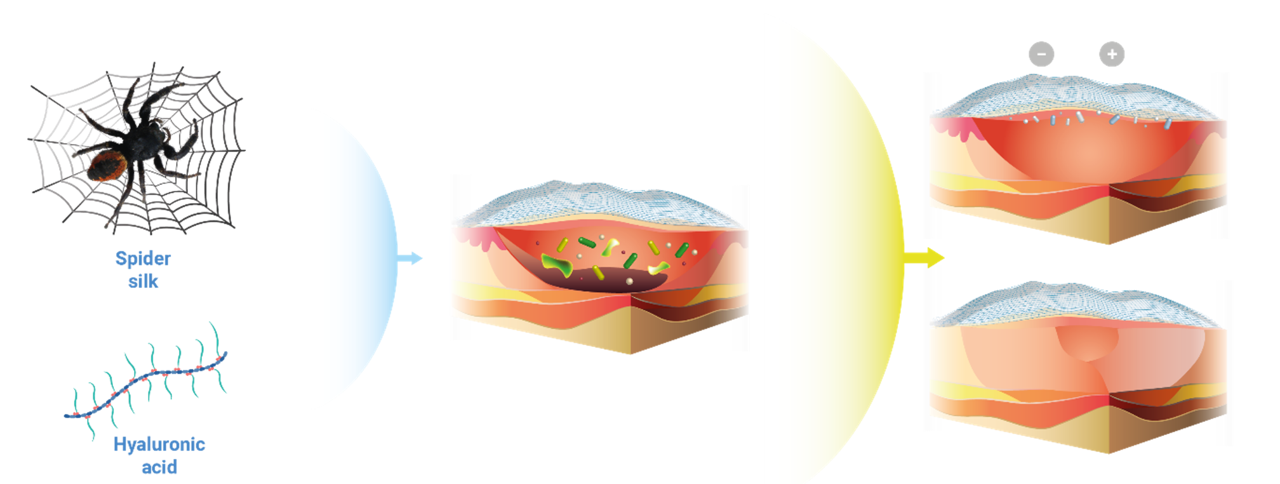Authors: Sinith Rashmin Withanage, Savin A.M., Nikolaeva V.O., Kiseleva A.P., Dukhinova M.S., Krivoshapkin P.V., Krivoshapkina E.F.

Abstract
Novel antimicrobial natural polymeric hybrid hydrogels based on hyaluronic acid (HA) and spider silk (Ss) were prepared using the chemical crosslinking method. The effects of the component ratios on the hydrogel characteristics were observed parallel to the primary physicochemical characterization of the hydrogels with scanning electron microscopic imaging, Fourier-transform infrared spectroscopy, and contact angle measurements, which confirmed the successful crosslinking, regular porous structure, exact composition, and hydrophilic properties of hyaluronic acid/spider silk-based hydrogels. Further characterizations of the hydrogels were performed with the swelling degree, enzymatic degradability, viscosity, conductivity, and shrinking ability tests. The hyaluronic acid/spider silk-based hydrogels do not show drastic cytotoxicity over human postnatal fibroblasts (HPF). Hydrogels show extraordinary antimicrobial ability on both gram-negative and gram-positive bacteria. These hydrogels could be an excellent alternative that aids in overcoming antimicrobial drug resistance, which is considered to be one of the major global problems in the biomedical industry. Hyaluronic acid/spider silk-based hydrogels are a promising material for collaborated antimicrobial and anti-inflammatory drug delivery systems for external use. The rheological properties of the hydrogels show shear-thinning properties, which suggest that the hydrogels could be applied in 3D printing, such as in the 3D printing of antimicrobial surgical meshes. View Full-Text
Keywords: hyaluronic acid; spider silk; antimicrobial hydrogels; drug delivery; enzymatic degradability; biocompatibility; antimicrobial resistance